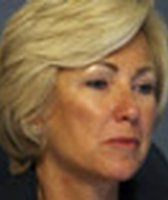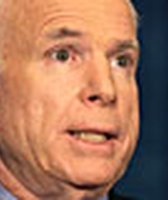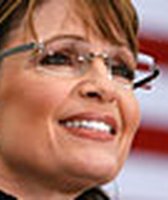Stand up for the facts!
Our only agenda is to publish the truth so you can be an informed participant in democracy.
We need your help.
I would like to contribute
SUMMARY: Hillary Clinton opposes making English the nation's official language, but in making the case she flubs some important details.
In a debate on CNN in June 2007, Clinton tackled the thorny social question of whether to give the English language some official designation in law.
"The problem is that if it becomes official instead of recognized as national — which indeed it is, it is our national language — if it becomes official, that means in a place like New York City you can't print ballots in any other language," Clinton said.
"That means you can't have government pay for translators in hospitals so when somebody comes in with some sort of emergency there's nobody there to help translate what their problem is for the doctor.
"So many of us — I did, at least — voted to say that English was our national language, but not the official language because of the legal consequences of that."
Here's the trouble: English never has been designated as the 'national' language of the United States. The vote Clinton took in favor of the idea was on an amendment to an immigration bill in 2007 that died.
What's more, the mere designation of an official language would not trigger the problems Clinton mentions, a point made clear by the non-partisan Congressional Research Service in a report in January 2007. In fact, the report, which is an update of previous reviews on the same topic, concludes there is little difference between calling English a "national" or "official" language.
"Standing alone, a legislative declaration of English as the 'official' or 'national' language of the United States would be a largely symbolic act of negligible legal effect," the report says.
The consequence of making English the official language would depend on the details (and fate) of at least a half-dozen bills — including two for constitutional amendments — now pending in Congress. It also would depend on how states choose to handle affairs on their own. The CRS report notes that at least 28 states already have given English some form of official designation, but they vary widely in how that designation is applied.
When Politifact followed up, the Clinton campaign took a more nuanced position on the language designation than the one Clinton declared in the debate.
"If English became the official language, it could open the door to undermining several federal statutory requirements regarding foreign language interpretation, besides voting rights, and the use in federal programs and activities," campaign spokeswoman Fabiola Rodriquez-Ciampoli wrote in an email.
The assorted pieces of legislation in Congress propose to repeal federal mandates for non-English ballots in the Voting Rights Act or restrict programs giving people the right to multilingual services, according to the Congressional Research Service. But none of the bills would ban them.
For example, federal policy since a 2000 presidential executive order considers multilingual services to be among the rights guaranteed in federal civil rights law (at least one bill pending would repeal that, too).
The language issue has been around for a long time, and was part of the immigration law debates in Congress in 2006 and 2007. In 2006, as Clinton notes, the Senate approved a bill that made English the "national language." That designation stopped short of measures that would have required U.S. government publications to be in English as the nation's "official language." The House never approved the measure.
But unless Congress combined an 'official' designation with separate legislation that expressly banned non-English ballots and other programs for non-English speakers, the consequences of the designation would be minimal.
Our Sources
CNN New Hampshire debate June 3
Congressional Research Report on English as the Official Language of the U.S. Jan. 25, 2007 (CRS doesn't publish its reports online so interest groups and sometimes members of Congress do it for them.)
Executive Order 13166, Aug. 13, 2000











































